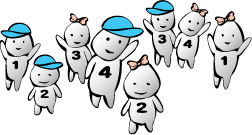 Having just read your article online about keys and wounds I have a question. If a certain word/image was associated just before the 'trauma', and when this word is repeated later, you go back to trauma etc., is that word also then the 'healing key'? For example, say just before, you hear the word 'love', then unknowingly every time in later life you hear that word you are sent back to the old memories, once you discover its the word 'love' sending you back, does this then become the key word to healing the wound? Sorry if this sounds confusing, just trying to figure it out. I hear a lot about 'healing keys', and yours is the first to make any kind of sense. What I'm trying to say is, are the keys that trigger the trauma/memory, also the keys that heal the memory/trauma? Love Karen
Hi Karen, Thanks so much for writing. Yes, you are very much on the right road and close to understanding what, for me, has become one of the greatest gifts I have ever received; the ability to see the painful stimulus which occurs immediately before the injury as the "key" to finding the actual injury itself, rather than as the injury. My favorite way of stating this idea is to say that "the wound is what you can not see, rather than what you can see." Thus, the "key" is literally whatever the person experiences in the instant just prior to the injury. Using your example, it definitely could be the sound of the word, "love." In this case, then, later hearing the word "love" would cause this person to either experience a painful charge or a painful absence of meaning, and both are possible, depending on how one relives the wounding scene. A recent analogy I've been using pictures it this way: If a person were to be shot in the shoulder in such a way that the bullet were to simply pass through the person's flesh and nothing more, what would the injury be? Asked this question, many people would say the wound would be the symptoms which would appear around the bullet hole; the ragged and painful flesh surrounding the hole, the bleeding, the suffering the person would feel, etc. These symptoms are not the wound though. The wound would be the actual hole itself, literally, what was missing from the person's body. Sadly, no one yet pictures wounds in this way. Thus, regardless of how loving the treatment involved, more times than not, people actually work to eliminate the symptoms, thus hiding the only clues which can actually lead to the wound itself. Please know, I am not suggesting we ignore peoples' symptoms, only that we need to use them for what they were meant to be used for; as what guides us to the actual wound. Now if I were to revise my shooting example from a bullet hole to being punctured by a needle, think of how small the hole might be. Thus, the wound itself would in all likelihood be quite difficult to find. How would you find it? The easiest way, of course, would be to gently press in and around the visible symptoms, trying to elicit a painful response which could then be used to guide one to the actual wound itself. This is how Emergence Practitioners use "keys." We use them to guide us to where the actual injury exists. This works, however, only if and when we remember that the symptoms are not the injury itself but rather only the "keys" which can lead us to the injury. Now to go back to your example with the word "love" then, picture a little four year old girl being held tightly by the hand and about to be beaten. If she was terrified but not yet in shock, AND if the person doing the beating said at the last minute, "I'm only doing this because I love you," AND if the shocking first hit came immediately at the point the person said the word "love," then, yes, the word "love" would later function as a "post hypnotic suggestion"; a word "cue" or "key" with the power to instantly return the person "experientially" back into that very painful moment. This last point, that wounding "keys," at their most basic level, function in essentially the same way post hypnotic suggestions do for stage hypnotists, is one of the more important ideas here. Even without this idea, though, what you have already stated is actually pretty clear and concise. What might help you even more would be to now read a few of the stories, such as "No Lefts" or "Especially Good," both of which are stories story intended to clearly point to the idea that the "keys" are always the literal experiences and never the meanings of these experiences. And like your example which uses the word "love," the key in both these stories was the experience of hearing a word rather than the meaning of the word. Please know, should you have any more questions, I will be glad to help as best I can. And thanks again for writing. Steven 
|
.